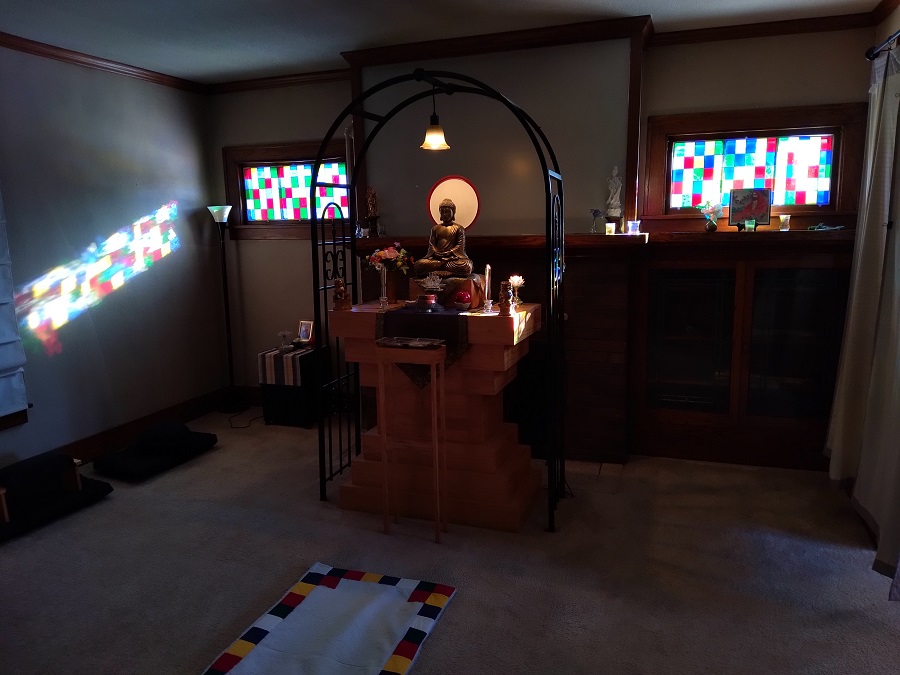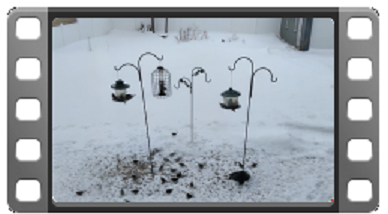In this issue:
The Way to the Ultimate is not hard;
simply give up picking and choosing.
Just by not giving in to hatred and craving
will your heart and mind be as clear and
bright as the realm beyond the opposites:
Let but a hair's breadth of discriminatory thought arise
and you have made Heaven and Earth
strangers to each other.
This is the opening verse of the poem by Great Master Seng-ts’an (J: Kanshi Sosan), That Which Is Engraved Upon the Heart That Trusts to the Eternal.1 The poem is revered as an important teaching in the Chan/Zen tradition. There is much instruction packed into just these first few lines. The following are some reflections on them.
The Ultimate spoken of is, as Rev. Master Jiyu expressed it, recognized reunion with the Eternal.2 It is the “Pure” spoken of in the Scripture of Great Wisdom—the inner Place where the prison walls of self dissolve and reveal a boundless vista where our heart and mind are seen to be, in their essence, “void, unstained, and Pure.”
The Way to the “realm beyond the opposites” and reunion with the Eternal is Transmitted to us in our Serene Reflection Meditation tradition: the practicing of pure meditation and the Precepts. We need absolutely nothing more for healing our broken heartedness and fostering our spiritual reunion. They are the vehicle for traveling the Way home to our True Heart.
When we regularly practice pure meditation and mindfully apply the Precepts in daily life, we increasingly learn how to “give up picking and choosing” and “not give in to hatred and craving.” We find that the place of Purity “beyond the opposites”—beyond the self—has actually been within us all the time: we are born with It, live our lives bound to It, and die into It. Why does it seem hard to realize this?
It is hard because our ordinary, egocentric mind is conditioned to live in the opposites and “pick and choose.” It is the habit energy of thought and attitude that “hates” what threatens the primacy of the self and “craves” what supports and reinforces the self. It is easy for the self-centered mind to judge things as “good” (self-enabling) or “bad (self-restraining or self-transcending). Sadly, it is hard for the ordinary mind to change in the seat of deepest consciousness. The poem encourages us to go deeper and discover a different way of thinking and being.
The poem tells us that we do have access to a deeper, all-inclusive “big” Mind that transcends the egocentric mind of “picking and choosing.” It is a “clear and bright” Mind that has let go of judgmentalism and prejudices; turned away from hatred and craving; given up winning and losing; stopped seeking ultimate refuge in external things and beings. It is the Mind that includes the Heart,3 and when we allow them to work together we follow (practice) the Way on a journey to a “clear and bright” inner realm of our being that is beyond the opposites. Then, as it is said, “samsara is nirvana” and this world becomes “the playground of the Bodhisattva.”
The last line is:
Let but a hair's breadth of discriminatory thought arise
and you have made Heaven and Earth
strangers to each other.
When I recite the poem, I have a natural tendency to emphasize the word you. The implication of this line is that “Heaven” (nirvana) and “Earth” (samsara) are harmoniously united together in the natural state of things, and that it is our self-centered thoughts and the acts of body and speech arising from them that make them “strangers” to each other.4 As Dogen instructs in Rules for Meditation, “when the opposites [discriminatory thought] arise, the Buddha Mind is lost.” We are, therefore, responsible for what we do with our thoughts.
In the end, only we can change our own mind. But we cannot do it without help. We simply cannot will the mind alone to change the mind: that is a self-referential closed loop that goes nowhere endlessly, like a mouse on its exercise wheel. Meditation and the Precepts break open that loop–that cage–and help us across the bleak landscape of self to the “clear and bright” Eternal “realm beyond the opposites.” The Way is not hard, but the walking away from self can be difficult. We just have to trust the Heart that longs to make the journey.
__________________________
Note: the footnote references in the text link to these footnotes. To return to the text, use the Back arrow or button on your browser.
1In Buddhist Writings on Meditation and Daily Practice: The Serene Reflection Meditation Tradition, Shasta Abbey Press; 2nd edition (February 12, 1995)
2 Rev. Master Mokushin expands on this in her article, “Reunion with the Eternal,” in the October 2021 issue of the Serene Reflection Dharma Association newsletter.
3The Chinese word for the intertwined relation of intellect and empathy is Xin (心), often translated as “heart-mind.”
4I am reminded of what Milton wrote in Paradise Lost: “The mind is its own place and, in itself can make a heaven of hell or a hell of heaven.”
NEWS OF THE TEMPLES
North Star Dharma Refuge
Rev. Bennet completed the second of a pair of stained glass windows for the meditation hall. The colors are said to be those the Buddha radiated at the time of his enlightenment.

Clients taking advantage of the "North Star Dharma Refuge Avian Soup Kitchen:"

